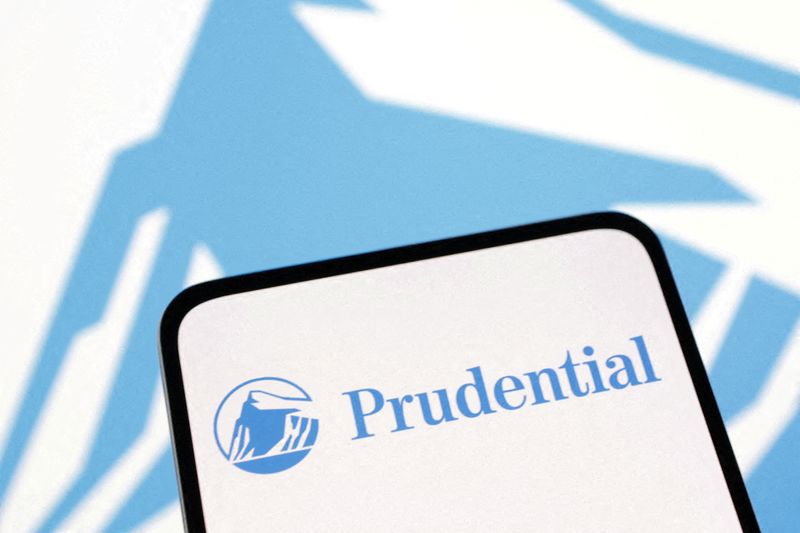By Koh Gui Qing
SEATTLE (Reuters) - Some insurers operating in the United States stand to reap a windfall worth hundreds of millions of dollars from the relaxing of a 31-year-old rule on reporting interest rate-related losses, a Reuters review of regulatory filings and interviews with executives and analysts show.
U.S. regulators who met in Seattle on Sunday voted to change how insurers should recognize these losses after the industry lobbied for the move.
The change, whose scope and financial impact are first reported here, will free up cash which insurers can use to write new policies, invest in their business, or boost their share price through dividends and stock buybacks, according to their financial disclosures and analysts who cover them.
At least 23% of life insurers rated by credit ratings agency Fitch stand to benefit, because their interest rate maintenance reserves (IMR), which reflect gains or losses from interest rate changes, were negative as of the end of December. That is up from 8% a year earlier. A negative IMR forces insurers to tap pots of money they would have otherwise spent on their business or returned to shareholders.
The change, which would expire at the end of 2025 unless revisited, will allow insurers to realize some of these losses over time, rather than straight away, according to a draft of the proposal released by the National Association of Insurance Commissioners (NAIC).
The Reuters review, which included a search of the public filings of all insurers listed in the stock market as well as those rated by credit ratings agencies, shows the changes will be particularly advantageous for firms invested in long-term bonds. This is because bonds that were issued before the Federal Reserve raised interest rates more than 5 percentage points over the last year carry much lower rates, and insurers incurred losses when they sell them.
Among those insurers are Prudential Financial (NYSE:PRU), OneAmerica Financial Partners, Principal Financial (NASDAQ:PFG) and Massachusetts Mutual Life Insurance Company, according to Fitch. In the case of Prudential, the reprieve would be worth more than $1.3 billion, according to the company's disclosures. That compares to $1.8 billion in net fixed income-related losses Prudential recorded in 2022.
The NAIC's move diverges with how banking regulators have approached the same issue. They do not give banks the option of deferring interest rate-related losses, fearing excesses that led to the 2008 financial crisis. Such losses were behind the collapse of major regional banks this year, including Silicon Valley Bank and First Republic Bank (OTC:FRCB).
Some consumer advocates have criticized the NAIC for going ahead with the proposal. Edward Stone, a lawyer who has represented policyholders in cases where troubled insurance companies were liquidated, said the rule change would encourage more insurers to risk investment losses in order to juice returns.
"Insurance companies, for decades, have been trying to kick the can down the road. This is just another attempt by them to say we should get some sort of favorable accounting treatment," Stone said.
An NAIC spokesperson said the change is in the interest of insurance policyholders, because they would make it easier for insurers to sell loss-making bonds to re-invest in higher-yielding ones, boosting their financial health.
A representative for the American Council of Life Insurers (ACLI), a lobby group that pushed for the change, said its intention is to harmonize the treatment of interest rate-related losses and gains. Under existing rules, insurers with a positive IMR realize the benefit over time, rather than immediately.
Insurers in the United States are regulated by individual states rather than the federal government, but the NAIC has said that all states will automatically adopt the change it backs. While the change sunsets in 2025, the NAIC is also considering a long-term tweak to the rules, insurers including Equitable Holdings (NYSE:EQH) and MetLife (NYSE:MET) have said in filings with the U.S. Securities and Exchange Commission (SEC).
DEFERRING LOSSES
Following the rule change, insurers will be allowed to amortize interest rate-related losses over time equivalent to 10% of their statutory surplus. The statutory surplus is the difference between insurers' assets and liabilities, money that can be used to pay policyholders in unforeseen circumstances.
The new regime has some safeguards. A key metric of an insurer's financial health, its risk-based capital ratio, would have to be at least 300% after adjustments to be allowed to defer interest rate-related losses.
Prudential would have been able to reverse about $1.3 billion of $1.8 billion in bond losses last year had the new rules been in place, Chief Financial Officer Ken Tanji told analysts on the company's second-quarter earnings call.
The change will also increase Prudential's risk-based capital ratio to 409% from 383%, according to an SEC filing. Staying close to the 400% threshold is a target many insurers seek to achieve a better credit rating.
A Prudential spokesperson declined to comment beyond Tanji's remarks.
A spokesperson for MassMutual, which along with Prudential, OneAmerica, and Principal Financial ranks among the insurers rated by Fitch that have the largest negative IMR balances, declined to comment on gauges of the company's financial strength, such as its risk-based capital ratio. The spokesperson would only say that MassMutual had a negative IMR balance of $611 million as of the first quarter of 2023.
OneAmerica declined to comment, while Principal Financial did not respond to requests for comment.

Some insurers that do not carry large negative IMR balances also say they would benefit from having room to take more risk when hedging interest rates. Unum Group (NYSE:UNM), which has "very little" negative IMR, would see little immediate financial impact from the change but would be able to be more flexible with its hedging program when it comes to accepting losses, chief financial officer Steven Zabel told analysts on August 2.
"That would be helpful to really ramp up the hedging program a little bit more," Zabel said.